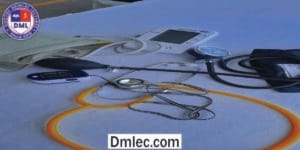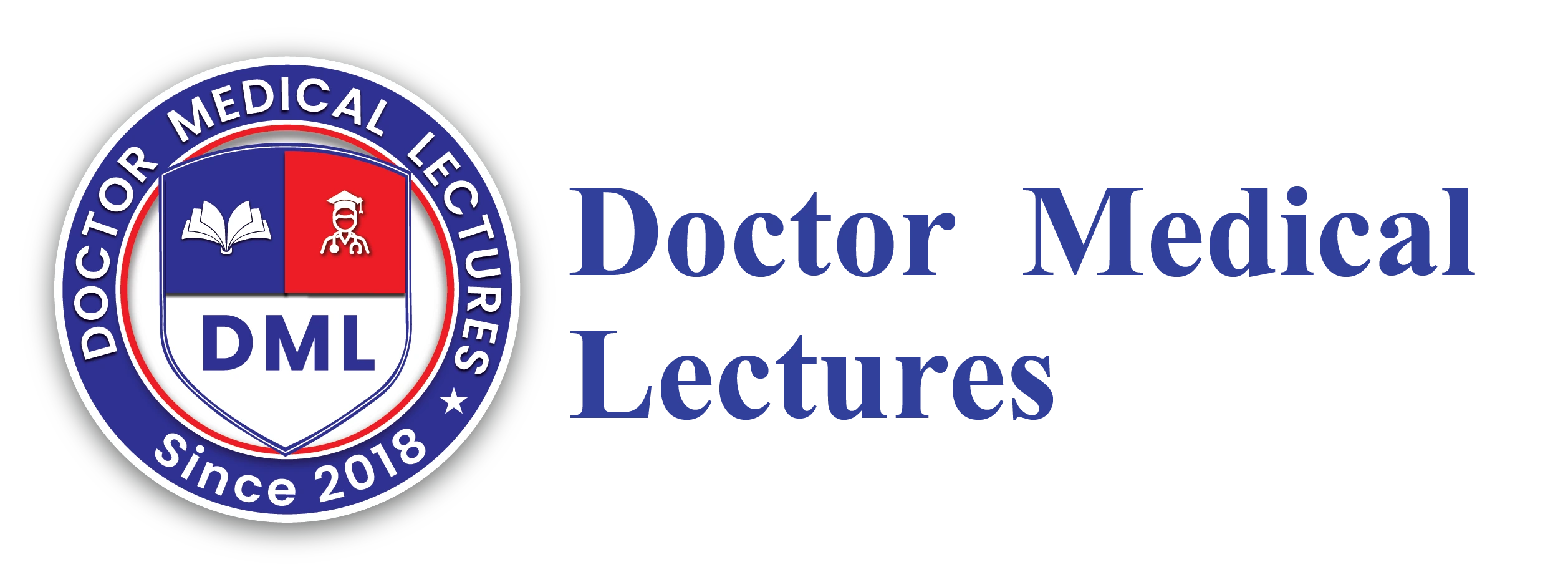Introduction
The achievement of passing NRE Step 2 is a milestone achievement for medical professionals who wish to practice in Pakistan. The achievement does not just confirm the clinical competence of your doctor but allows you to obtain official medical registration, house jobs, and a future specialty. But, once you have passed the examination, many new graduates have a difficult time understanding the precise procedure to are to follow.

This guide explains the entire post NRE Step 2 path from PMDC licensure to submitting an application for a house job and progression in your career. This will help you take your next step in the career ladder in a clear and confident manner.
1. Apply for Full PMDC License
Apply online on the PMDC’s official PMDC (Pakistan Medical and Dental Council) website. Once you have logged into the portal, head through the “Apply for Full License” section. There, you’ll need to submit a complete application and upload scans of the documents you need. The site is simple to use but any errors may result in rejections or delays. Following submission the form, a reference number will be issued, which you have to ensure is safe to track purposes.
Required Documents and Eligibility Criteria
In order to apply, you’ll have upload the NRE Step 1 and Step 2 outcome certificates, your MBBS degree the final transcript, your passport or CNIC, your most recent pictures, and your temporary PMDC registration, if you’ve had it previously. All of these documents should be authenticated in accordance with PMDC instructions. Also, you must confirm that your school is acknowledged by PMDC and is listed as a foreign institution that is approved by their list. If the documentation you submitted is not complete or not clear or unclear, your application might be put on hold.
Timeline and Follow-Up
Following submission, the process typically will take between 2-4 weeks. However, it can vary based on the number of submissions. The updates will come to your mail or on the dashboard of your portal. PMDC will digitally issue the license number and provide a downloadable certificate. Be sure to check the name, the license number and the date of issue for adequacy. After you have received the license, only then is it legal to move on onto the next step, namely, a house job application.
2. Start House Job (Internship) in a Recognized Hospital
The job at home isn’t just a routine job. It’s an important time for clinical learning that allows doctors to rotate through different departments such as Internal Medicine, Surgery, Pediatrics, Gynae/Obs, and other departments. This is your first opportunity to be able to interact with patients directly under the direction of. This builds confidence and improves your clinical judgment and helps you prepare for specialtyization courses. PMDC mandates that doctors finish one year of an experience before submitting to postgraduate programs.
How to Apply and Where to Find Opportunities
There are many public and private hospitals recognized by PMDC for work in house. Check out hospitals’ websites, notice boards, as well as jobs on social media. Certain hospitals have interviews, however, others will select applicants by merit and availability. Make sure you have your original documents with you when applying. Also, think about submitting your application in person for more impression.
Documents Needed for House Job
When applying, you’ll require the original of your PMDC complete certificate, MBBS degree, CNIC as well as the NRE 2 result, as well as passport sized images. A few hospitals will request an application letter or CV. It is important to keep everything organized into a neat file. Inquire if the hospital offers the option of a paid or unpaid internship as well as if it provides the flexibility of a rotation to meet your goals in the workplace.
3. Career Options After House Job
Once you’ve completed your job at home and completing your house job, you can pursue a specialty as the next thing to do. One of the most well known routes is FCPS that is provided through the College of Physicians and Surgeons Pakistan (CPSP) with a range of fields like Surgery, Medicine, Gynecology, Dermatology, and much more.
It is necessary to pass FCPS Part 1 before enrolling in a training. Additionally, MD and MS programs are offered through both the public and private institutions. They typically require a formal course of study, which is accompanied by academics as well as research. Many doctors prefer MCPS as it is shorter and focuses more upon primary care. It is important to consider your interests over the long term and skills because specialization is what sets the stage of your professional career.
General Medical Practice and MO Jobs
If you’d like to get the practical experience you need before becoming a specialist in a specific area, then becoming a General Physician (or Medical Officer (MO) is an excellent alternative. Numerous government hospitals as well as basic health centers employ MOs on a permanent or contract basis, especially in regions that are rural or not well served.
The positions provide you with first hand experiences in directing patients on your own and recognizing health system issues and gaining solid diagnosis abilities. Private clinics and hospitals also are open to newly licensed doctors and those with excellent communication abilities. General medicine practice also gives the doctor to consider different career opportunities in addition to earning income while helping to improve the public health.
Academic and Research Opportunities
Students interested in teaching or research-based practice can choose to pursue academic or research roles. Medical schools often need demonstrators or junior lecturers for departments such as Anatomy or Physiology. Pathology. This is a great opportunity to build a solid foundation in the field of theory, and also keeping you in touch with academia. If you’re keen on researching, you could be a part of clinical research organizations (CROs). As well as NGOs or on university projects that are focused on the public health field, infectious illnesses, or health policies. Research experience can also help your chances of being accepted into international fellowships. As well as postgraduate programs in foreign countries.

4. Maintain and Renew Your PMDC License
Your PMDC license is not a one time achievement; it must be renewed periodically usually every five years. This renewal procedure is done online using PMDC’s portal. It’s necessary to provide an updated set of documents, pay for the renewal fee and then confirm your professional activity since the previous renewal. The procedure can take up to a couple of weeks. Therefore, we recommend starting early, especially if you plan to apply for exams or jobs soon. Many institutions will also request the proof of having a valid license before issue of certificates for completion of house work or special training letters which makes timely renewal essential.
CPD Requirements and Validity
Medical professionals practicing in Pakistan must complete Continuous Professional Development (CPD). PMDC will require you to finish the required number of CPD points or hours prior to renewing your license. You earn points by participating in approved webinars and workshops. As well as clinical seminars as well as completing accredited online training courses. CPD assures that physicians stay current with new technological advances, standards in medicine and treatments. Organizations like CPSP, PIMA, and even WHO have CPD approved training programs available. If you fail to comply with CPD standards can result in delays in renewing your license or refusal. Which could end the practice of your choice or even affect training eligibility.
What Happens If You Don’t Renew On Time
Failure to renew your licence on time can result in grave negative consequences. The penalties you face could include temporarily suspended practices, as well as exclusion from PMDC’s active physician registry. When this occurs the applications for jobs or postgraduate exams registrations and the process for obtaining a visa (if seeking visas for a visa to another country) might be affected. Hospitals and employers often check their licenses on the internet. Having a expired license may harm your reputation as a professional. Reactivation typically requires additional documentation, justification as well as penalties. Thus, scheduling reminders to your renewal deadlines and changing the information on your CPD profile is vital to ensure unstoppable career growth.
5. Tips for a Smooth Transition to Medical Practice
A professional portfolio requires not just about collecting awards. It’s the process of creating a logical document of your educational and professional journey. Portfolios should contain your MBBS degree as well as transcripts, NRE grades, PMDC license, house certification for your job, and other achievements, such as books or classes. Make both digital and physical formats in PDFs, folders, and even PDFs. Prepare in advance to respond promptly to job openings, training courses, and international applications. A well prepared portfolio demonstrates your professionalism during interviews and helps you stand out among your peers.
Network and Stay Updated
The importance of networking is for Pakistan’s medical professionals. Interacting with fellow medical professionals, doctors, professors, house officers. As well as medical professionals can provide you with access to unpublished employment opportunities. As well as information on your options for specialization. Join groups that are official or unofficial such as Facebook, WhatsApp, and LinkedIn with regular announcements on PMDC policies, CPSP exams, hospital hiring, and even workshops are discussed. Also, attending local CMEs (Continuing Medical Education) or medical expos improves your standing and opens up new collaboration opportunities. These groups often recommend candidates for numerous job opportunities and FCPS training positions.
Plan for the Long Term
Whatever your plans are to either settle in Pakistan or want to pursue a career in another country. A longer term career plan provides you with a goal and direction. If you’re staying in Pakistan you should choose a specialization depending on the demand, your desires, as well as the training available. If you plan to travel, make in the early stages of preparation for exams such as USMLE, PLAB, or AMC.
Study the specific pathways, forms, and financial costs involved in that country. Also, consider your future plans, such as the opening of a private clinic, enrolling in public services (e.g., PPSC, FPSC) and also participating with healthcare policy. An organized plan of action helps with managing time, planning financials. As well as achieving milestones in your professional career quickly.
Conclusion
Achieving NRE Step 2 is just the start of your career as an medical doctor in Pakistan. From getting your PMDC certification to finishing your home job, and selecting your career choice, each stage requires attention, precision and commitment. If you want to focus on or teach, conduct research or even work as a general practitioner This is where planning comes in. Utilize this resource to make informed choices and create a career that you’ve put your heart into. Success starts with the right mindset, discipline and a supportive strategy.
Frequently Asked Question
1. What is the earliest time to apply to get the PMDC license following the completion of the NRE step 2?
You are able to apply as soon as you have your step 2 result has been posted on the PMDC portal. You must submit your application together with all the necessary documents along with the required cost.
2. Do I have to be considered for a house based job prior to receiving the PMDC license?
Not at all Most hospitals will require the valid PMDC fully licensed. License prior to accepting the applicant for a job in a residence even though you’ve passed each of the NRE step.
3. Do you have to work in a home following NRE Step 2?
Yes It is a must as it validates your professional skills and is necessary prior to pursuing further postgraduate studies or working independently.
4. Are private hospitals able to accept NRE Step 2 passed candidates to work in house positions Do they?
Many PMDC recognized private hospitals offer house jobs. However, competition is high dependent on the location and available.
5. Are I able to be eligible for FCPS just after my housework conclusion?
Yes. After your job at home will allow you to sit for FCPS Part I or MD/MS admission examinations based on the pathway.
7. Are there any opportunities to work in the United States in the future after completing NRE Step 2?
NRE Step 2 is only for testing in Pakistan. If you want to work overseas it is necessary to be able to pass the licensing test for that country for example, USMLE, PLAB, or AMC.
9. How do I determine the status of a hospital that is PMDC acknowledged for house work?
PMDC publishes a list of hospitals that are recognized through its official site. Make sure you verify the status of the hospital prior to applying.
10. Do I have the ability to practice as a general practitioner in the following NRE Step 2?
Yes once you have received your PMDC certificate and finishing the house work and residency. You are able to work as a general doctor and medical official.
